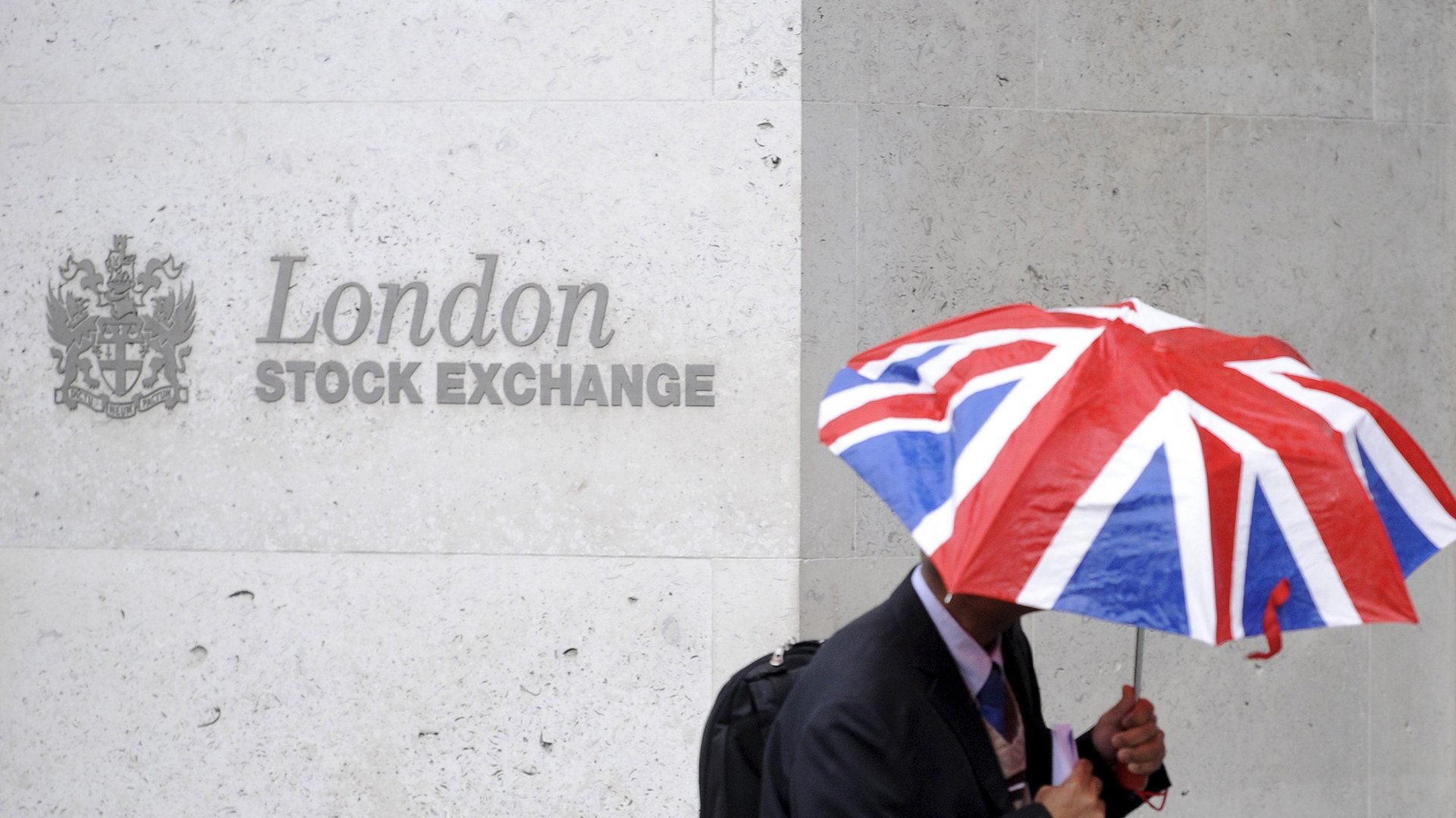The UK’s biggest investors are punishing fossil fuel laggards
In his annual letter to CEOs last week, Larry Fink, chief executive of world’s largest asset manager BlackRock, argued that investors with an interest in mitigating climate change should hang on to their shares of fossil fuel companies and effect change from within. Across the pond, several of the UK’s biggest investment funds are taking a more combative approach.


In his annual letter to CEOs last week, Larry Fink, chief executive of world’s largest asset manager BlackRock, argued that investors with an interest in mitigating climate change should hang on to their shares of fossil fuel companies and effect change from within. Across the pond, several of the UK’s biggest investment funds are taking a more combative approach.
On Jan. 23, the Universities Superannuation Scheme (USS), which manages the pensions of academics and is the UK’s biggest private pension fund, said it will yank $6.7 billion of its $110 billion in assets out of funds controlled by BlackRock, and place them in a low-carbon fund managed by Legal & General Investment Management. The new fund (pdf), which includes only companies that have demonstrated significant progress on decarbonization, says it will reduce the carbon footprint of USS’s investment by 30%, with an additional 7% reduction expected annually.
Meanwhile, the Church of England announced that more than two dozen top energy companies, including BP and Chevron, have not yet aligned their businesses with the goals of the Paris Agreement and would thus be excluded from the Church’s $4 billion pension fund. And in a letter this week to CEOs, London-based Aviva Investors a $353 billion asset manager, warned that it will vote to replace board members at companies that don’t demonstrate progress on climate, and will support resolutions to link executive pay to the achievement of environmental goals.
Hundreds of financial institutions representing trillions in assets have committed to a net zero goal for some or all of their portfolio. But they remain divided about the best way to get there—pressure polluting companies from the inside as shareholders, or divest? The former strategy works only if the biggest investors actually vote in line with their principles, which they often don’t. The latter risks delivering control of companies to private equity firms that don’t care about climate action at all.
At the very least, the growing divestment movement illustrates political momentum behind climate action—and proof that meeting a fund’s fiduciary duty to nurture the investments of pensioners does not require fossil fuels.